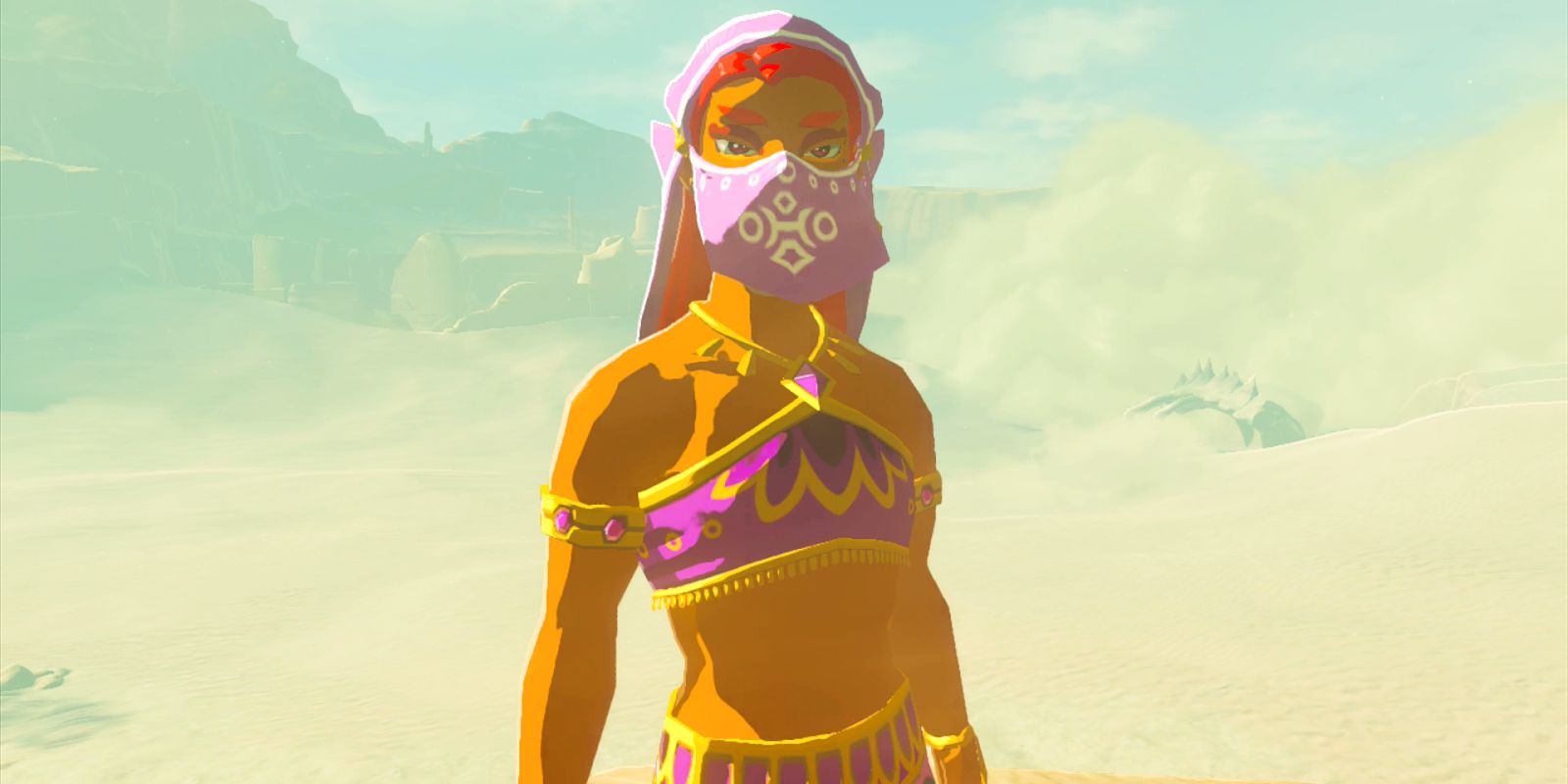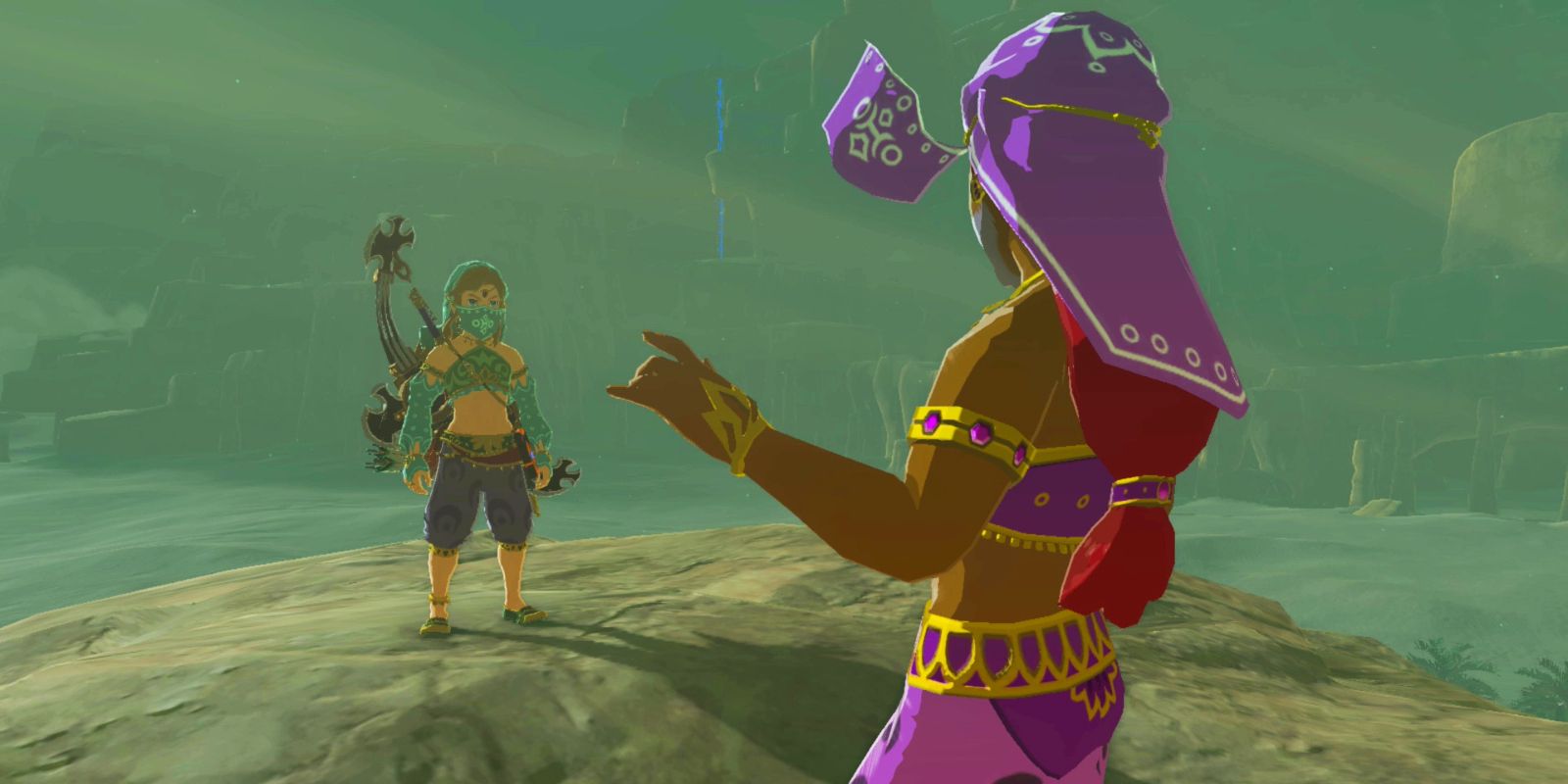Breath Of The Wild's Trans Representation Controversy Explained

The Legend of Zelda: Breath of the Wild revitalized the Zelda franchise, adding open-world exploration and a non-linear story to a series that previously revolved around step-by-step dungeons. However, while Nintendo's reimagining of Hyrule is generally beloved by fans and critics alike, Breath of the Wild caused controversy in one key area: transgender representation.
Video games have historically done a poor job of accurately portraying the lives of transgender people, as have other forms of media, often including them to serve as joke punchlines rather than actual human characters. This has been changing in recent years, though. For example, Tell Me Why, an episodic narrative game from Dontnod Entertainment, received praise for not only featuring a transgender man as the lead character but unabashedly tackling issues faced by the trans community every day. But where other recent games have succeeded, Breath of the Wild took two steps back.
In order to gain access to one of BOTW's Divine Beasts, Link needs to enter Gerudo Town. It's a big problem for him, however, because men aren't allowed inside. In previous Zelda games, the Gerudo have been depicted as an all-female race that lives in the desert, so this twist shouldn't come as a surprise to any fan versed in Zelda lore. To sneak into Gerudo Town, Link needs to dress up as a female Gerudo and convince the guards he belongs inside. That's where the problems start - not in Link's crossdressing but in who he encounters on his quest for a convincing costume.

Link's mission takes him to Vilia, a person whom one NPC describes as a "man" that was somehow able to sneak into Gerudo Town. Others describe Vilia as a woman, however, and Vilia herself seems to identify as female, wearing women's Gerudo clothing and denying any knowledge of a man entering Gerudo Town. During Link's conversation with Vilia, Breath of the Wild itself seems to mock her identity, presenting the player with the option to progress the conversation through flattery or to end it by suspiciously accusing her of being a man. As Feminist Frequency pointed out in a 2019 video, the pairing of these dialogue choices implies Link - and, by extension, the player - is meant to believe Vilia is actually a man, only complimenting her to give her what she wants.
Regardless of Vilia's "true" in-universe identity, her depiction in Breath of the Wild matches harmful stereotypes about trans women. It encourages players to see them not as real women but as deceptive men, disguising themselves in order to "infiltrate" (as the previously mentioned NPC worded it) female-only spaces for some sinister purpose. The game also portrays trans women as something to laugh at, since Link's compliments about Vilia's appearance are juxtaposed with his apparent belief that she really looks like a man.
This "joke" is emphasized when, at the end of the cutscene, a gust of wind knocks Vilia's veil away and reveals a beard, which shocks Link and is clearly meant to make the player laugh. In reality, some transgender women (and cisgender women) do have beards. Facial hair is simply the result of hormones and might have nothing to do with how someone feels about their gender. The portrayal of a woman having a beard as scandalous perpetuates the belief that transgender women who don't adhere to traditional gender norms are not real women, potentially harming them, as well as cisgender women who can grow beards and transgender men who aren't be able to.
It's disappointing to see such an unnecessarily harmful representation of transgender women in a game as beloved and mainstream as Breath of the Wild. Transgender women are women, regardless of how they decide to present, and a portrayal of a transgender woman as deceptive and "a man" (and, therefore, not a real woman) is extremely gross. While it's perfectly fine to enjoy Breath of the Wild as a whole, it's also important that fans acknowledge how inappropriate this section of the game is and demand Nintendo does better in the future.
from ScreenRant - Feed
